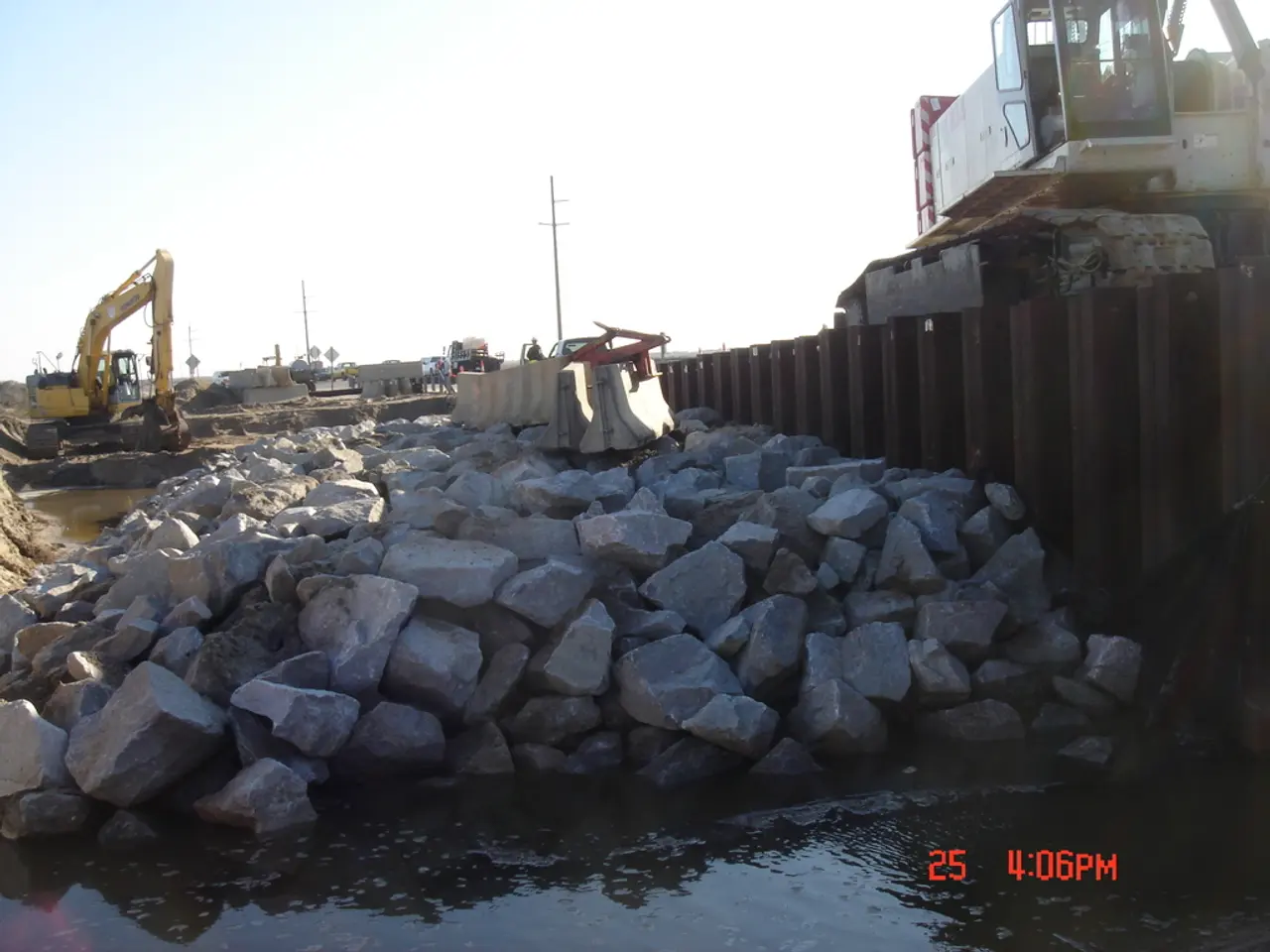Drought Stress in Bavaria: Persistent Shortage of Rainfall in Bavaria
Persistent Lack of Rainfall Continues to Plague Bavaria - Persistent Drought in Bavaria: Scant Rainfall Ravages the Region
Got the drips, but still need a deluge – that's the current situation in Bavaria, according to environmental experts. The Bavarian Environment Agency in Augsburg reports that the winter half-year, lasting from early November to the end of April, was "unusually arid." Apart from a wet January 2025, all other winter months were excessively dry, says the latest low water report for the state.
Specialists evaluate the so-called hydrological winter half-year and, sadly, last winter's lack of snowfall is a testament to that. In Würzburg, there was just one day with a snow cover of 1 centimeter, in Augsburg four days, and in Munich six. In comparison, folks in Hof, Upper Franconia, experienced a somewhat typical winter with 34 snow days.
The Scarceness of Snow on the Zugspitze
Even on Germany's highest peak, the insufficiency of snow is glaring. The German Weather Service's station on the Zugspitze recorded a snow depth of 116 centimeters on May 5 – a record-low "snow cover strength" since 1942 when it was only 85 centimeters.
Groundwater Reserves in the Free State Remain in Critical Condition
The absence of snow is also noticeable in the groundwater reserves of the Free State. Owing to insufficient rainfall over the past years, too little new groundwater is being formed. According to the Environment Agency, nearly half of the shallow measurement points exhibited "low or very low values" during the last winter half-year. In "deeper groundwater layers," the situation was slightly better, yet 41 percent of the measurement points still showed low water levels.
Experts foresee no recovery for Bavaria's drinking water reserves. The Environment Agency notes, "No lasting recovery can be expected due to the continuing drought."
Poor Prospects for the Summer Half-Year
The current situation for groundwater is considered unfavorable, as during vegetation periods, increased evaporation resulting from plants exacerbates the unavailability of fresh precipitation for groundwater recharge.
Groundwater is an essential resource for drinking water in Bavaria. More than two-thirds of Bavarian drinking water comes from around 4,300 wells that tap into the groundwater, as per the Environment Agency.
Climate Change Imprint
Climate change brings droughts, altered precipitation patterns, and consequent impacts on groundwater levels and quality. Europe, including Germany, faces water resource challenges due to agricultural demands and altered weather conditions caused by climate change[1].
Biodiversity Efforts
Bavaria has undertaken initiatives to nurture biodiversity and natural habitats, indirectly supporting groundwater conservation. These include establishing interconnected habitats, preserving farmland's natural features, and expanding organic farming practices, enhancing ecosystem health and groundwater management[3].
Drinking Water Quality
Germany and Bavaria have stringent regulations for drinking water quality as outlined in the Drinking Water Ordinance. This ensures drinking water safety and wholesomeness, but the focus is primarily on quality rather than groundwater quantity [5].
Monitoring and Management
Recent advancements in technology enable the use of satellite imagery for monitoring water resources and biodiversity across Europe. This innovation could potentially be harnessed to assess groundwater conditions indirectly via changes in vegetation health and water bodies[1]. For comprehensive data on groundwater reserves in Bavaria, consult specific government reports or environmental studies focusing on the region's hydrology and water management practices.
- The Environment Agency in Augsburg mentions the winter half-year was unusually arid, with January 2025 being the only exception where there was enough rainfall.
- Snowfall was minimal in many Bavarian cities, with Würzburg, Augsburg, and Munich experiencing just one, four, and six days of snow cover respectively, while Hof had 34 snow days.
- The insufficient snowfall is also contributing to the critical condition of groundwater reserves in the Free State, as per the Environment Agency reports.
- Climate change is expected to bring droughts, altered precipitation patterns, and subsequent impacts on groundwater levels and quality, as pointed out by specialists.
- While Bavaria has implemented initiatives to support biodiversity and natural habitats, maintaining groundwater quantity is not the primary focus, as per the Environment Agency.








